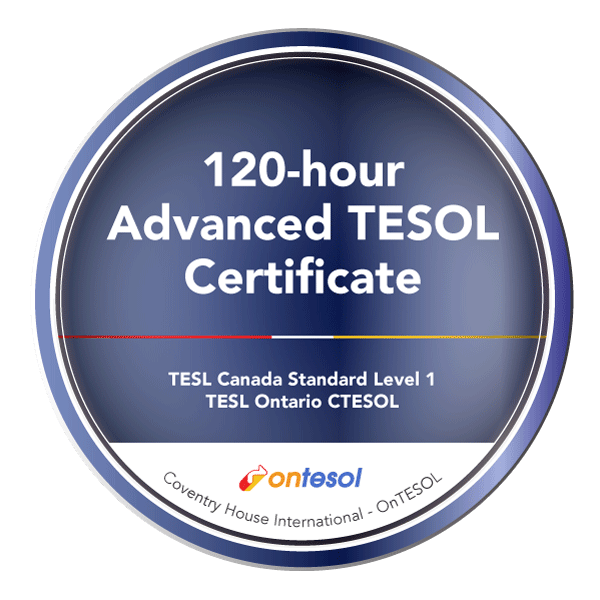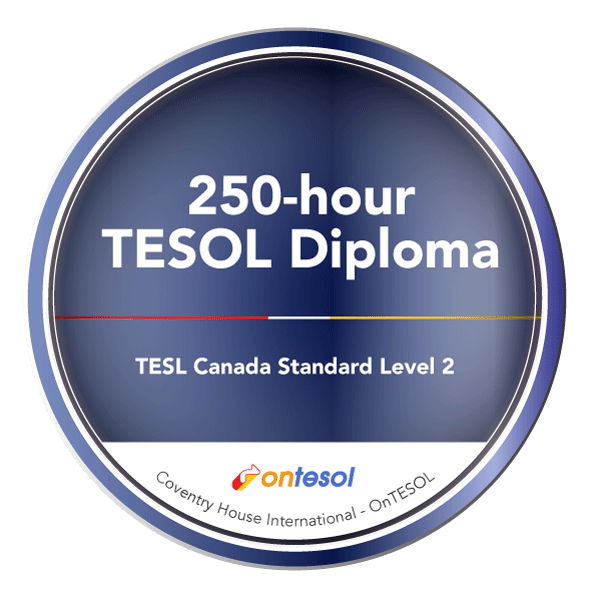TEFL/TESOL Courses > 12-hour Virtual TESOL/TEFL Module
12-hour Live TESOL / TEFL Module
Get all the benefits of a quality in-class course from the comfort of your home. Attend live classes with other peers via Zoom.
The 12-hour Live TESOL/TEFL Module adds an interactive virtual experience to the self-paced grammar, phonology, and methodology modules in the 120-hour Advanced TESOL/TEFL Certificate and 250-hour TESOL Diploma courses.
How it Works
Combine flexible asynchronous learning with a live interactive experience
The 12-hour Live TESOL / TEFL module is a series of 6 live classes via Zoom. The same series is offered every month on fixed dates. Students can attend any monthly session when they reach the respective module in the online TESOL / TEFL course. Students are not restricted to attending all the modules the same month, so they have the flexibility to attend the live sessions any time during the course.
What’s Included in the 12-hour Live TESOL / TEFL Module?
The unique semi-synchronous format offered by OnTESOL allows you to study TESOL/TEFL online and attend live classes with other peers at your own pace.
10-hour Lesson Planning Workshop
The 10-hour Lesson Planning Workshop is a series of four (4) live workshops offered via Zoom. Each workshop consists of 2.5 hours of live training covering the materials related to the Lab Assignments in the OnTESOL courses.
Each workshop includes a live lecture presented by our Senior Teacher Trainers to review the communicative and task-oriented ESL lesson planning frameworks used for teaching different skills and levels that we cover in our self-paced and hybrid online TESOL / TEFL courses. Attendees will also have the opportunity to ask the trainer live questions and participate in practical group activities (See syllabus below).
Live Grammar & Phonology Tutorials
The objectives of our grammar and phonology tutorials center around the fundamental aspects of ESL teaching. Both grammar and pronunciation are pivotal in ESL education, requiring ESL instructors to have a deep understanding of the rules governing these linguistic components, as they will be tasked with teaching these aspects across all proficiency levels to facilitate ESL students’ acquisition of a new language.
In every tutorial session, we carefully examine key objectives concerning grammar and pronunciation teaching. We go beyond just sharing information; we aim to clarify complex rules that can be challenging for new ESL educators.
Unlike traditional lecture-based approaches, our tutorials adopt an interactive format. Participants are equipped with tools to pinpoint areas of confusion, enabling them to cultivate a strong foundation in grammar and pronunciation. This understanding not only enhances their own linguistic proficiency but also equips them with the means to better support their ESL students on their learning paths.
Key Dates
| Module | Description | Schedule |
|---|---|---|
| Grammar Module | 1-hour tutorial | Second Thursday of each month, 6 pm – 7 pm (Eastern Time) |
| Phonology Module | 1-hour tutorial | Fourth Thursday of each month, 6 pm – 7 pm (Eastern Time) |
Frequently Asked Questions:
If you registered in the 168-hour Hybrid TEFL Certificate, you need to attend all four live sessions to receive the final TEFL certification. If you registered in the 120-hour Advanced TESOL Certificate or the 250-hour TESOL Diploma, you do not need to attend the live sessions to pass the online TESOL course.
If you cannot attend a live session due to schedule, time zone, or maximum capacity limitations (100 students per session), you may wait a few weeks until the next monthly series starts from the beginning. You may also opt to complete the chapter without accessing its live session and attend the next workshop in the series as you proceed in the TESOL / TEFL course.
Students who want to benefit from the live sessions are required to attend and participate in group activities. Those who are not able to attend will not receive a recording of the live workshop, but they will have access to messaging their tutor and a variety of pre-recorded videos for support with the lesson plan assignments, including FAQs Videos by our Senior Tutors and Lab Videos by our Director of Studies.




